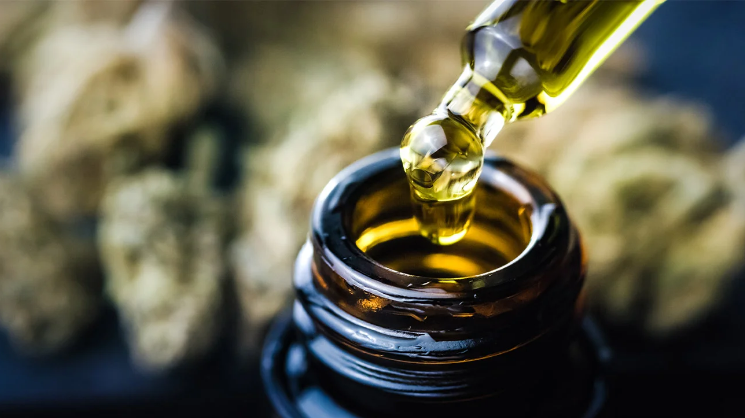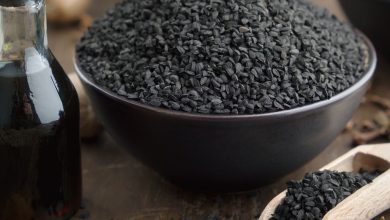CBG Oil vs. CBD Oil: Understanding the Differences and Benefits

Introduction
Cannabinoids are naturally occurring compounds found in the cannabis plant, with over 100 different types identified so far. Among them, Cannabigerol (CBG) and Cannabidiol (CBD) have garnered significant attention due to their potential therapeutic benefits. While both are non-psychoactive and offer a range of health benefits, they differ in their chemical structure, interaction with the body, and specific uses. This article delves into the differences and benefits of CBG Oil and CBD oil, helping you make an informed decision on which might be better suited to your needs.
What is CBG Oil?
Origin and Extraction
CBG, often called the “mother cannabinoid,” is the precursor to other cannabinoids like CBD and THC (tetrahydrocannabinol). In the early stages of the cannabis plant’s growth, it primarily contains cannabigerolic acid (CBGA). Enzymes within the plant convert CBGA into CBDA, THCA, and other cannabinoids, leaving only trace amounts of CBG in the mature plant. To obtain a significant amount of CBG, extraction is typically done from younger cannabis plants or specially cultivated hemp varieties with higher CBG content.
Mechanism of Action
CBG interacts with the endocannabinoid system (ECS) by binding to both CB1 and CB2 receptors, found in the brain and immune system, respectively. This broad interaction contributes to its diverse therapeutic potential.
What is CBD Oil?
Origin and Extraction
CBD is one of the most abundant cannabinoids in the cannabis plant. Unlike CBG, CBD is more plentiful in mature cannabis plants, particularly in certain strains of hemp. The extraction process for CBD often involves CO2 extraction, which ensures a pure and potent product.
Mechanism of Action
CBD interacts with the ECS indirectly, primarily influencing CB1 and CB2 receptors without binding to them directly. It also interacts with other receptors such as serotonin and TRPV1, contributing to its wide range of effects.
Differences Between CBG and CBD
Chemical Structure
Both CBG and CBD have similar molecular structures, but they differ slightly in the arrangement of their atoms. This small difference in structure causes them to interact differently with the ECS and other receptors in the body.
Interaction with ECS
- CBG: Directly binds to CB1 and CB2 receptors, providing more direct stimulation of the ECS.
- CBD: Interacts indirectly with CB1 and CB2 receptors and influences other receptors, resulting in a broader range of effects.
Availability and Cost
CBG is more challenging to extract and is found in smaller quantities in cannabis plants, making it more expensive than CBD. Conversely, CBD is more abundant and thus generally more affordable.
Research and Usage
- CBG: Still in the early stages of research, though initial studies show promise for various health conditions.
- CBD: Extensively researched with numerous studies supporting its use for a variety of conditions, leading to broader mainstream acceptance and use.
Benefits of CBG Oil
Anti-Inflammatory Properties
CBG has shown strong anti-inflammatory effects, making it beneficial for conditions like inflammatory bowel disease (IBD) and arthritis. Its ability to directly interact with CB2 receptors in the immune system enhances its anti-inflammatory potential.
Neuroprotective Effects
Studies indicate that CBG may have neuroprotective properties, which could help in treating neurodegenerative diseases like Huntington’s disease. By protecting neurons, CBG may help maintain cognitive function and slow disease progression.
Antibacterial Properties
CBG has demonstrated significant antibacterial properties, particularly against antibiotic-resistant strains like MRSA (Methicillin-resistant Staphylococcus aureus). This makes it a potential alternative or complement to traditional antibiotics.
Appetite Stimulation
CBG has been found to stimulate appetite, which can be beneficial for individuals experiencing appetite loss due to medical conditions or treatments like chemotherapy.
Glaucoma Relief
CBG has been shown to reduce intraocular pressure, which can help alleviate symptoms of glaucoma and protect the optic nerve from damage.
Benefits of CBD Oil
Pain Relief
CBD is widely recognized for its analgesic properties, making it effective for managing chronic pain conditions such as fibromyalgia, arthritis, and migraines. It interacts with the ECS and other pain-regulating systems in the body to provide relief.
Anxiety and Depression
CBD has been shown to reduce symptoms of anxiety and depression by interacting with serotonin receptors in the brain. This makes it a natural alternative to pharmaceutical antidepressants and anxiolytics, with fewer side effects.
Anti-Seizure Properties
One of the most well-documented benefits of CBD is its anti-seizure effects. It has been approved by the FDA for the treatment of certain types of epilepsy, particularly in children with conditions like Dravet syndrome and Lennox-Gastaut syndrome.
Anti-Inflammatory and Immune Support
CBD also possesses anti-inflammatory properties, which can help with autoimmune conditions and chronic inflammation. It modulates the immune system, reducing inflammatory responses and promoting balance.
Skin Health
Topical application of CBD can help with various skin conditions, including acne, eczema, and psoriasis, due to its anti-inflammatory and antioxidant properties.
How to Use CBG and CBD Oil
Sublingual Application
Both CBG and CBD oils can be taken sublingually by placing a few drops under the tongue. This method allows for quick absorption into the bloodstream, providing fast relief.
Topical Application
For localized issues such as muscle pain or skin conditions, CBG and CBD oils can be applied directly to the skin. This method targets the affected area without entering the bloodstream.
Ingestion
CBG and CBD oils can be added to food or beverages. This method offers a slower, more sustained release of cannabinoids into the bloodstream, making it ideal for long-term use.
Vaping
Vaping CBG or CBD oil provides rapid absorption and can be useful for immediate relief of symptoms. However, it’s important to use high-quality products to avoid potential health risks associated with vaping.
Determining the Right Dosage
Start Low and Go Slow
When starting with either CBG or CBD oil, it’s recommended to begin with a low dose and gradually increase it until the desired effects are achieved. This helps minimize the risk of side effects and allows the body to adjust.
Consider Your Body Weight
Dosage often depends on body weight. A common starting point is 1-2 mg of CBG or CBD per 10 pounds of body weight. Adjustments can be made based on individual response.
Consult a Healthcare Professional
Before starting any new supplement, especially if you have existing health conditions or are taking other medications, it’s advisable to consult with a healthcare professional. They can provide personalized guidance and help determine the appropriate dosage.
Monitor Your Response
Keep track of how your body responds to different doses of CBG or CBD oil. Note any changes in symptoms, side effects, or overall well-being. This information can help you adjust your dosage for optimal results.
Potential Side Effects
CBG Oil
- Dry Mouth: CBG can reduce saliva production, leading to dry mouth. Staying hydrated and using oral moisturizers can help.
- Drowsiness: High doses of CBG may cause drowsiness. Avoid driving or operating heavy machinery until you understand how it affects you.
CBD Oil
- Dry Mouth: Similar to CBG, CBD can cause dry mouth.
- Drowsiness: CBD can also cause drowsiness, especially at higher doses.
- Diarrhea: Some individuals may experience digestive issues like diarrhea.
- Interactions with Medications: Both CBG and CBD can interact with certain medications, particularly those metabolized by the liver. Consult with a healthcare professional to avoid potential interactions.
Choosing the Right Product
Check for Third-Party Testing
Ensure the CBG Oil or CBD oil you choose has been tested by an independent lab for purity, potency, and safety. Look for a certificate of analysis (COA) to verify the product’s quality.
Opt for Full-Spectrum or Broad-Spectrum Oil
- Full-Spectrum: Contains other beneficial cannabinoids and terpenes, which can enhance the effects through the entourage effect.
- Broad-Spectrum: Contains multiple cannabinoids but is THC-free, ideal for those who want to avoid THC.
Consider the Source
Choose products made from organically grown hemp to avoid exposure to pesticides and other harmful chemicals. Reputable companies will provide transparency about their sourcing and manufacturing processes.
Conclusion
Both CBG and CBD oils offer a range of potential health benefits, but they differ in their chemical structures, mechanisms of action, availability, and specific uses. CBG oil shows promise for anti-inflammatory, neuroprotective, and antibacterial effects, while CBD oil is well-documented for pain relief, anxiety reduction, anti-seizure properties, and skin health. Understanding these differences can help you make an informed decision about which cannabinoid might be better suited to your health needs. Always consult with a healthcare professional before starting any new supplement, and choose high-quality products to ensure safety and efficacy.









